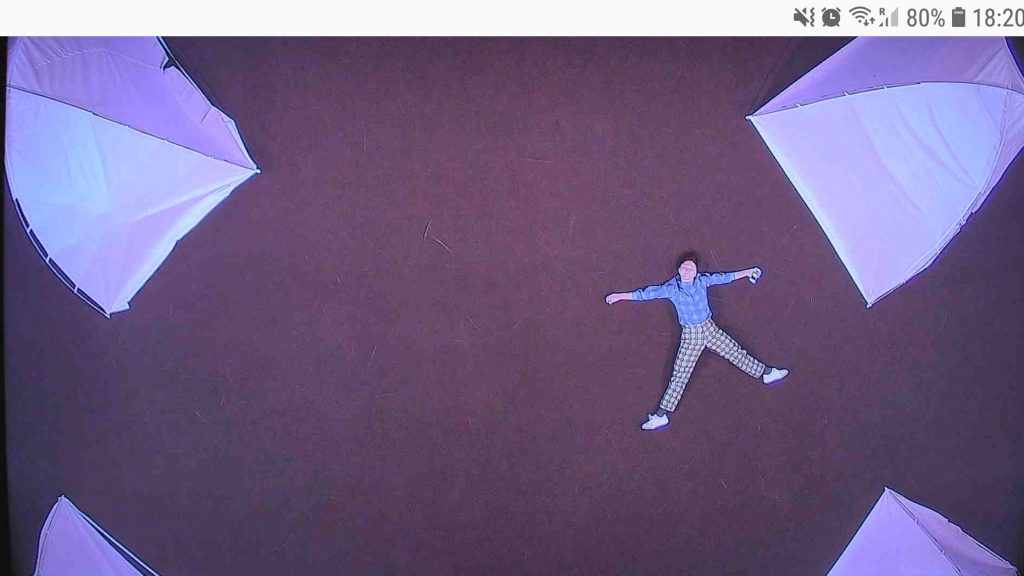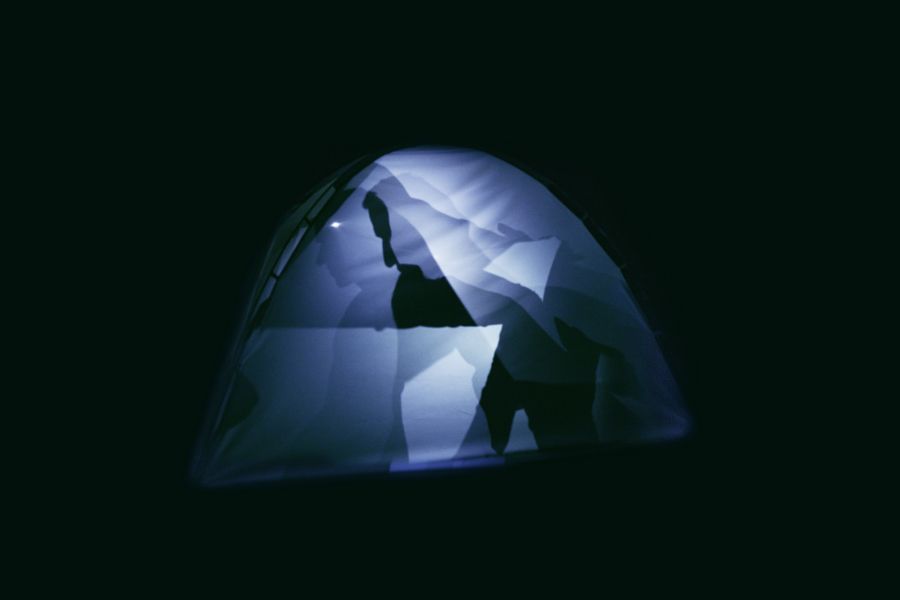“Please turn ON your smartphones and keep an eye on your screens all the time” is probably not the first sentence you’d expect to hear upon entering a theatre for – what you think will be – a straightforward ballet performance, packed with technique, sky-high leaps and jumps, beautiful costumes and joyful classical music.
The idea that technology is taking over every single aspect of our lives, including social interactions, has inspired this new show from Corpus, a dance company within the Danish Royal Ballet. The piece is named ‘Ghosting’, a modern social internet-phenomenon.
Ghosting along with two other behavioural patterns – ‘trolling’ and ‘lurking’ – are introduced and the audience is taken on a journey to experience a physical encounter with the otherwise disembodied character of the internet.
Have you ever been ‘ghosted’?
The term ‘Ghosting’ is used to describe the decision of an individual to cease all communication and contact with somebody they were close to, normally in an intimate relationship with, without any prior warning or explanation.
With the rise of social media, and dating apps in particular, and a therefore increasing anonymity and isolation in modern-day dating, the phenomenon appears to be becoming more common. In addition, it is often associated with a decline of empathy in society as well as with the promotion of a generally more selfish, narcissistic culture.
In their performance, the cast of Corpus thus asks questions about personal proximity and distance, bodily interactions and the meaning of empathy in the digital age.
Unconventional from the start
The piece might be described as a ballet, but it doesn’t really have anything in common with the genre.
READ ALSO: Ballet Review: A beginner’s mixed bag of confusion, tradition and excitement
This becomes apparent right from the beginning: called into a wide, all-black room, the audience are surprised to see only a few white tents pitched on the floor instead of a stage and seating areas.
After gathering around what appears to be an ordinary table, the spectators are asked to log onto a live video feed delivered from a webcam on the ceiling, which enables them to watch the show – including themselves – from the bird’s eye view.

Meeting the ghosts
After ‘going online’, the audience members are allowed to move around freely in the open-stage setting and access the tents, where the performers invite them to meet “their own ghosts” in the course of different successive stages.
An initial and, quite frankly, strange encounter with ‘captives’ of game and internet addiction – dancers imitating videos and games on their smartphone screens and rattling off computer code – firmly takes the spectators out of their comfort zones.
Surprise on the table
For all the following acts, the video live feed now becomes crucial: the table that served as a meeting point prior to the performance now turns out to be a big video screen that can also be painted on. Filmed from above, it is visible on the phones.
From now on, the table is used as a playing field to direct the audience’s actions: for example by drawing landscapes forcing the viewers into strange positions so they can take ‘selfies’ or by chasing them around with insults on transparent cards as a way to simulate cyberbullying.

Corpus’s intention
While the dancers and audience members both function as directors at the drawing table, the dancers guide the spectators through the action.
The concept is interesting as differences in the participants’ behavioural patterns become apparent. Some are reluctant to join in and rather watch from the side while others become increasingly active, get physically close with dancers, rolling around on the floor or trying to escape the wave of insults that suddenly sweeps across the monitor.
Not only is this exactly what Corpus wants, as it believes that physical encounters within a performance are essential in order to portray the complex experience of being human, it also demonstrates the different characteristics of human beings that are often proclaimed as lost.














